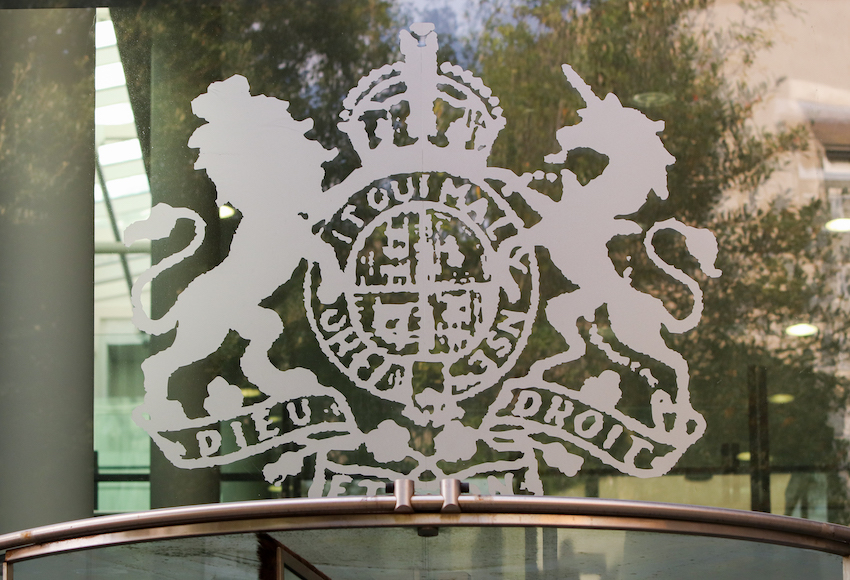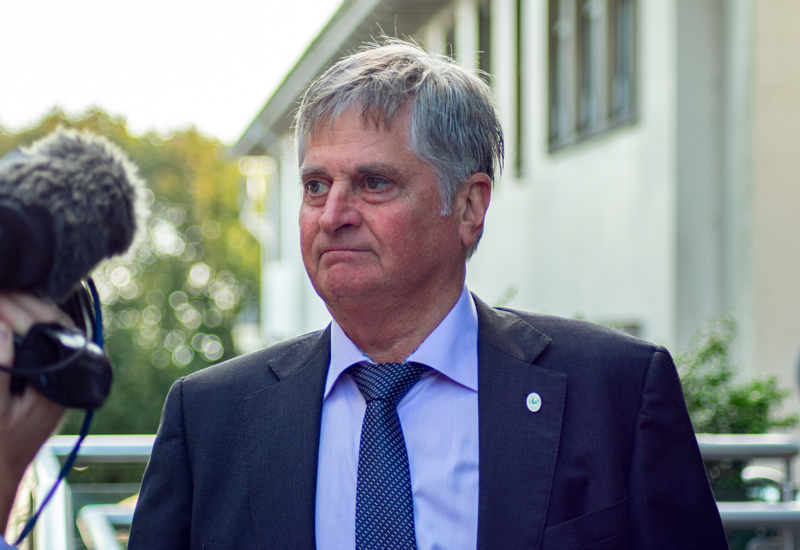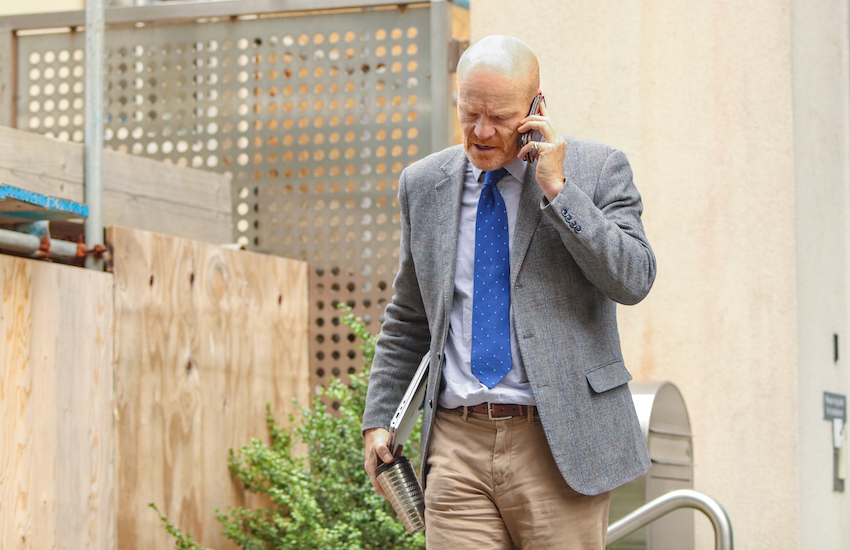


The President of Home Affairs continues to defend £250,000+ in legal expenses spent on fighting a series of claims against police officers, as one politician increases scrutiny of Law Enforcement’s use of private law firms.
Continued questioning of Law Enforcement’s use of outside law firms has revealed that more than a quarter-of-a-million was drawn from publicly funded sources to fight a civil case on behalf of several police officers.
Express has also learned that the President of Home Affairs sought to reassure States members that the Committee “appropriately followed the States’ litigation processes and procedures” prior to the publication of a series of Rule 14 questions.
Deputy Gavin St Pier put two rounds of questions to the Committee of Home Affairs after learning about an ongoing series of petty debt claims against serving police officers.
A couple who between them brought four claims against several serving police officers, including the Chief Officer of Police, had their case elevated from petty debts to the Royal Court last year.
The summonses stem from an arrest in 2021 which both Rob Curgenven and his partner Lucia Pirito claim was unlawful. They subsequently made official complaints to the police and began pursing legal action.
Advocate Robert Breckon, from Ferbrache & Farrell, represented the officers and argued in petty debts that the original arrest was “clearly lawful”.

As it became apparent that escalating legal costs would surpass the original claim - £12,000 – attempts were made to come to an agreement out of court. Eventually a Tomlin Order was made to stop the ongoing claims.
While the officers defended the original claims directly, the States – after conversation with insurers – decided that, because the officers were being taken to court over something that had happened in the course of duty, the financial cost of legal defence would by borne by the States of Guernsey.
While a specific cost has never been revealed, it’s now known that £5,000 came out of Home Affair’s budget, and £250,000 from the States’ Insurance Deductible Fund. It’s understood that the rest of the cost was covered by the States’ insurer.
Deputy St Pier asked several questions of Home Affairs in February, looking specifically for context as to why Law Enforcement had used Ferbrache and Farrell and not the States of Guernsey Law Officers.
In response the President of Home Affairs, Deputy Rob Prow, said that Bailiwick Law Enforcement would usually seek representation from St James Chambers, but “there are limited circumstances, however, in which external legal assistance may be engaged, such as where particular legal specialism is required, or where St James’ Chambers may not assist for professional reasons”.
He went on to explain that police officers are not ‘employees’ but hold public office and can therefore face some civil claims directly.
Deputy St Pier subsequently asked a series of supplementary questions including whether Policy and Resources were aware of the financial exposure (answer: yes), when the Committee was first made aware of the matter (answer: 3 October 2022), and whether legal professional privilege could be waived so the full costs could be revealed (answer: no).
You can find the full Q&A ONLINE.
Prior to the publication of the answers to Deputy St Pier’s second round of questions, Deputy Rob Prow emailed all the States members to explain the Committee’s position, it’s involvement politically and ask that members be mindful of Guernsey’s image in the run up to the island’s MoneyVAL inspection.
The following is an excerpt from an email chain that was anonymously shared to Express, and subsequently verified:
“The Committee has from an early stage been kept informed of developments and provided appropriate governance. Of course, whether people agree with the support provided by the Committee is a different question, but I wanted to assure you all that the Committee has appropriately followed the States’ litigation processes and procedures.
“From the outset of the claims, made not against the States or the Committee, but individual police officers, who then took legal advice, it was reasonable for the officers to defend the claims. The litigation affected them personally.
“Simply because a claim may be for a relatively small amount does not mean that a defending party should simply settle rather than defend it. However, in this case once it became clear that there was potential for legal costs to escalate beyond the value of the claim attempts were made – on two separate occasions – to engage in constructive negotiations but the Claimant refused unless any agreement included acceptance of guilt by the officers.
“Such an expectation was fundamentally at odds with it having been reasonable for the officers to defend the claims and it could not, therefore, form the basis of any negotiations. Clearly, notwithstanding that one party is willing to explore alternative means of resolving a dispute, it is not possible to avoid contested litigation if the other party is determined to continue with a claim.”

Pictured: Deputy Prow.
Later in the correspondence Deputy Prow said:
“The Committee has acted within its mandate, followed the States’ litigation processes and legal advice. While it is entirely reasonable for there to be appropriate scrutiny of such matters, we are no doubt all mindful that the island is currently going through a number of important external evaluations, including by MoneyVal.
“I am concerned about some of the coverage of these legal matters and would naturally, as the co-political lead for one such inspection, prefer that the Bailiwick is presented as the safe and secure place in which to live and work, that we all know it is.”
Deputy St Pier has since responded to both the responses to his most recent questions and Deputy Prow’s priming email before the publication of the Rule 14 Q&A.
“Home’s attempt to get their narrative out ahead of their responses to my written questions was commendable but it does contain some flaws. It suggested that the litigants refused to negotiate a settlement but that is not borne out by the correspondence which I’ve seen. Given costs were mounting up at the public’s expense, I’d have expected an attempt at alternative dispute resolution, such as mediation but this does not seem to have been tried.
“The claim that one of the litigants had been lawfully arrested is unfounded. Taken with the link being made to the quite separate firearm’s appeal, it appears, unfortunately, to be an attempt to discredit the litigants.
“It seems that £255,000 - £5k from HA's budget allocation and £250,000 from the States' Insurance Deductible Fund - of legal expenses have been borne by publicly funded sources. The IDF is funded from an annual allocation from general revenue. Its depletion by claims requires replenishment and is not 'cost-free' to the taxpayer. Together with an unspecified further sum borne by third party insurers - whose future premiums will of course reflect the claims experience - total costs of £400k remains a reasonable estimate - to defend claims totalling less than £12k.

Pictured: Deputy St Pier.
“Given recent events elsewhere in the States, it is of some comfort to know that both Home Affairs and Policy & Resources were being kept in the loop on this litigation as the costs ballooned. However, that does beg the question why didn’t anyone step in earlier to either seek alternative dispute resolution, such as mediation, or stop the litigation madness?
“It has not been explained by anyone and it’s not at all obvious why St. James’ Chambers considered themselves unable to act for the individual police officers, once the States had decided to stand behind them in defending the claims against them.”
He went on to say that the case, its handling and its coverage has nothing whatsoever to do with Moneyval's impending inspection: “Attempting to conflate the two provides no grounds for limiting scrutiny.
“I’m disappointed that Home Affairs have refused to seek the waiving of legal professional privilege by the officers concerned in order that litigation costs, borne at public expense can be properly disclosed in the public interest.”
The President of Home Affairs, Deputy Rob Prow, has since said that he will not be providing any further updates to States members on the matter: “Which has been concluded through the Court process.”
He has however suggested in relation to cost that the “very existence of [the IDF] is a recognition that government, by the nature of its roles and responsibilities, will be exposed to this type of risk”.
“It is reasonable that police officers should be appropriately supported for doing what is often a challenging job.”
Comments
Comments on this story express the views of the commentator only, not Bailiwick Publishing. We are unable to guarantee the accuracy of any of those comments.